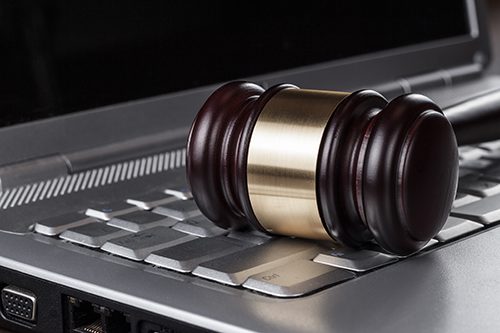We have quickly adopted a remote lifestyle in the wake of COVID-19; universities have moved to fully remote classrooms, companies are limiting in-office personnel, and even attorneys must maintain case continuity by conducting remote discovery. With the move to remote being a knee jerk reaction for most we are now realizing that something was missed. In the legal industry security, document management, and accuracy may have been overlooked as a result.
Is a video-conferencing tool sufficient for discovery?
Given that we have seen numerous security concerns circulating around video conferencing apps, it’s no wonder that attorneys are questioning their method of attendance and capture. Remote depositions are now the standard yet we have seen states barring oath administration on platforms like Zoom, corporations requiring greater security standards, and even countries outright banning the use of common video-conferencing tools; all over encryption and data location issues. So how can we differentiate between a secure method of discovery and a tool designed for casual conversation?
Like any skilled professional an attorney is expected to have the right tools for the job; a surgeon isn’t going to operate without a scalpel. When a litigator comes to the (virtual) table they must have the right tools to operate. When identifying a tool built for discovery, not only is the security key but also the record must be maintained including exhibits. When conducting a deposition and capturing testimony a traditional video conferencing tool is more of a swiss army knife than a scalpel. An attorney is now expected to make sure that their reporter is using a platform that:
- Use end-to-end encrypted video
- Leverages secure sign-on via direct invitation or a secure, sharable link
- Includes exhibit management (screen sharing does not allow a witness to freely review an exhibit)
- Provides a record of the matter (who attended, what was introduced, and when it occurred)
If the platform that you’re using can’t accomplish these basic deposition functions look for a complete solution, a deposition platform rather than a video-conferencing tool. The above four points will aid in maintaining privilege; by ensuring that the testimony is securely stored, that no unauthorized parties may disrupt the matter, and that the exhibits are complete and accurate.
The vTestify Reporter platform is a purpose-built discovery tool designed to capture remote depositions. Our platform leverages many built-in mechanisms to protect data from unintentional disclosure, requires end-to-end encryption at all times, and uses an integrated exhibit management system with digital stamping to ensure the integrity of exhibits introduced during legal proceedings. Additionally, vTestify uses a two-step authentication process before allowing participants into a remote proceeding. This represents a best-practices method for assuring all participants are known, verified, and announced in all proceedings.
This isn’t just a tool built for litigators, it is a platform that aids a reporter, the guardian of the record, with testimony preservation. vTestify ScriptSync uses AI to create a keyword-searchable redundant recording of the matter with each remote participant’s audio being separately recorded. Crosstalk creates inaudibles, our purpose-built platform leverages ScriptSync to reduce or eliminate those from the final transcript. Reporters can go back and listen to each remote source, single-channel recording, to confirm what they heard both while they are on the record and after the matter is complete. Read more about ScriptSync and Remote Source Redundancy
If you are not using a complete solution, a purpose-built testimony platform, then reach out to the vTestify team and see how remote capture and depositions for legal should look. Email contactus@vTestify.com, call (866) 845-1181 or fill out our Contact Form.


It sure was interesting when you pointed out that there is an available deposition platform that functions for deposition videos well. My sister-in-law will attend a video deposition next Friday, and she does not have the right tools for the task. Maybe, I can help her by finding an audio-visual rental company.